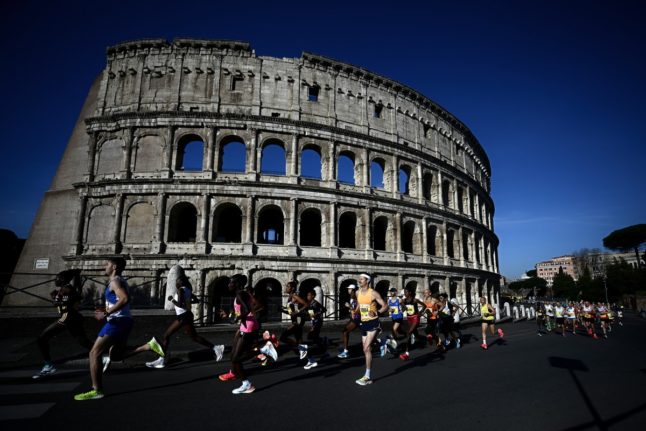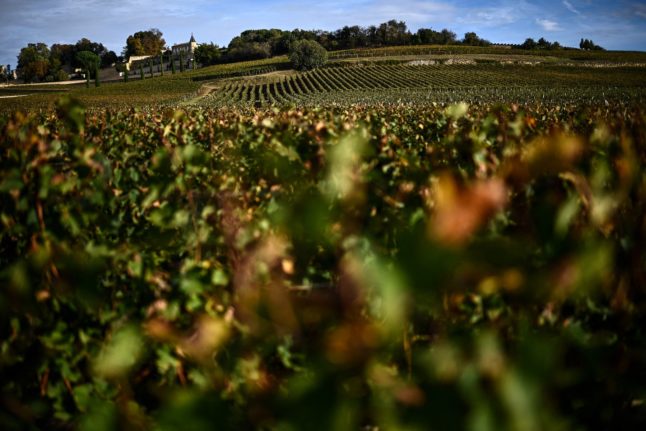The protesters disrupted the race at 9:00 am (0800 GMT) before officers moved them to the side of the road and took them to the police station, Last Generation said in a statement.
Last Generation warns of a spring and summer full of climate hazards for Italy as temperatures rise, with “deaths at work due to the heat, deaths in cities that are unliveable”.
Mida, a 26-year-old student who was one of the detained protesters, was quoted in the statement as saying she wanted to “sound an alarm because we will experience an unbelievable drought”.
The group demands the state create a reparations fund of €20 billion ($22 billion) for “all people suffering damage due to climate change”.
In recent months, Last Generation activists have thrown soup, cakes and paint on cultural sites and artworks in museums in shock tactics to spread their message.
Scientists say climate change induced by human activity is increasing the intensity, frequency and length of extreme weather events such as droughts, heatwaves and wildfires.



 Please whitelist us to continue reading.
Please whitelist us to continue reading.
Member comments